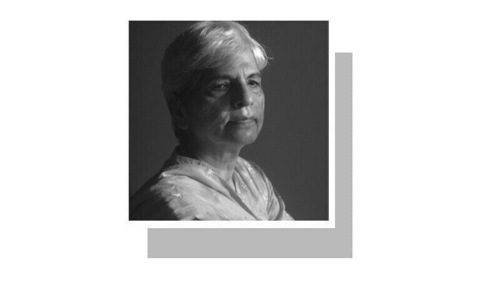AFTER several unsuccessful attempts, the US has finally succeeded in establishing direct contacts with the Afghan Taliban. Both sides are inching closer to the formal inauguration of peace talks in Qatar for settling the Afghan conflict.
The Afghan government and Pakistan, who claim stakes in any development related to the conflict, appear to have been sidelined by the US and the Taliban in a process Washington calls “exploratory”. To shun this impression, President Hamid Karzai told the Wall Street Journal recently that “there have been contacts between the US government and the Taliban, there have been contacts between the Afghan government and the Taliban, and there have been some contacts that we have made, all of us together” — a claim denied by the Taliban.
What is interesting is that contacts between the Taliban and the US have surfaced at a time when relations between Kabul, Washington and Islamabad are strained. The US may be talking directly to the Taliban but without Pakistan’s consent a group of former Taliban diplomats and their families wouldn’t have boarded a plane in Islamabad for Doha; without Kabul’s consent would the Afghan embassy in Islamabad have arranged their travel documents?
Those who left Islamabad for Doha along with their families included the former Taliban ambassador to Pakistan Shahab-ud-Din Dilawar, Islamabad-based diplomatic spokesman Sohail Shaheen and the Taliban ex-ambassador to the UAE Noorullah.
Pakistan’s lack of an articulated Afghan policy and continuous underestimation of the war games along its western border by armies of some 50 countries for a whole decade is going to cost it dearly once the political settlement of the conflict starts unfolding.
This situation is coupled with anti-Pakistan sentiments in relation to Pakistan’s negative role in the conflict. Afghans consider Pakistan irrelevant to any peace process and the US, too, is keeping Islamabad at a distance. The US has adopted a novel strategy in reaching out to the Taliban. Washington is avoiding Pakistan and the Pakhtun political elites in Kabul, but is seeking support of the defunct Northern Alliance — a faction of politicians and warlords opposed to Karzai — and known anti-Pakistan elements.
To dilute the Taliban’s (predominantly Pakhtun) influence in a future arrangement in Kabul, the US and its European allies are reportedly working on changing the presidential system in Afghanistan — a move strongly opposed by the Pakhtun elites but pursued by the Northern Alliance.
In the tripartite summit in Islamabad, observers believed Karzai would try his level best to use both Pakistan and Iran for taking the Taliban and the Northern Alliance away from the superpower camp.
Karzai believes the Taliban are under the influence of Pakistan, while Iran is holding sway over the Dari-speaking Tajiks and others forming the Northern Alliance, and that both can be instrumental in taking on the US for ignoring him. But this is unlikely as both the Taliban and the Northern Alliance understand that the situation does not favour the current Kabul regime. The US is no doubt facing pressure to finish the job early as Washington wants to shift its focus to Iran. But it does not mean it will allow billions of dollars and a decade of fighting in Afghanistan to be wasted.
A perception among the Afghan intelligentsia is that battle fatigue and financial issues are posing challenges to American field commanders who are finding it hard to keep various Afghan groups and leaders on their side with the now dwindling flow of dollars. The shrewd Taliban understand that due to shifting priorities and financial constraints, the superpower will be easy to talk to across the table.
Three main points are on the Qatar agenda — the withdrawal of international troops from Afghanistan, release of Taliban leaders from Guantanamo and allowing permanent military bases in Afghanistan. The Taliban have already scored some big wins and proved much smarter in the selection of time, venue and in talking directly to the US. Going to Qatar, the Taliban want to keep their negotiators away from Pakistan and shun the impression they are influenced by the intelligence agencies.
The policy of direct negotiations with the US enables the Taliban to be recognised as a legitimate force resisting foreign occupation in Afghanistan. Finding time on their side, the Taliban would rather milk a fatigued, financially weakened superpower than waste time talking with Kabul and Islamabad. The Taliban have very articulately positioned themselves for demanding total control over the Kabul regime once the US has left.
Unlike Karzai, the militia leaders are aware of the changing situation and politico-security paradigms in the region. They have learnt the politics of US permanent military bases inside Afghanistan. They link the latter to international concern, thinking that Pakistan, Iran, China, Russia and even India, who are more uncomfortable with the idea of a permanent US presence inside Afghanistan, should handle the issue.
The Taliban’s priority in Qatar will be making the US accept all their demands including the release of all prisoners, total withdrawal from Afghanistan and leaving the control of the Kabul regime to the militia. They will use the issue of military bases as a hard bargaining chip to extract more from the US and international bodies prior to agreeing to a limited US presence for a limited period in Afghanistan. If not total control, they will ask for a major share in the Kabul administration and control over the majority of provinces where they are resisting Afghan and international forces.
The Taliban believe that Qatar is providing an opportunity of entering the Kabul valley victorious and also for earning them a respectable space in history as the invincible Afghans who defeated a superpower.
The writer is director news, Khyber TV, Islamabad Hasan.khyber@gmail.com










































